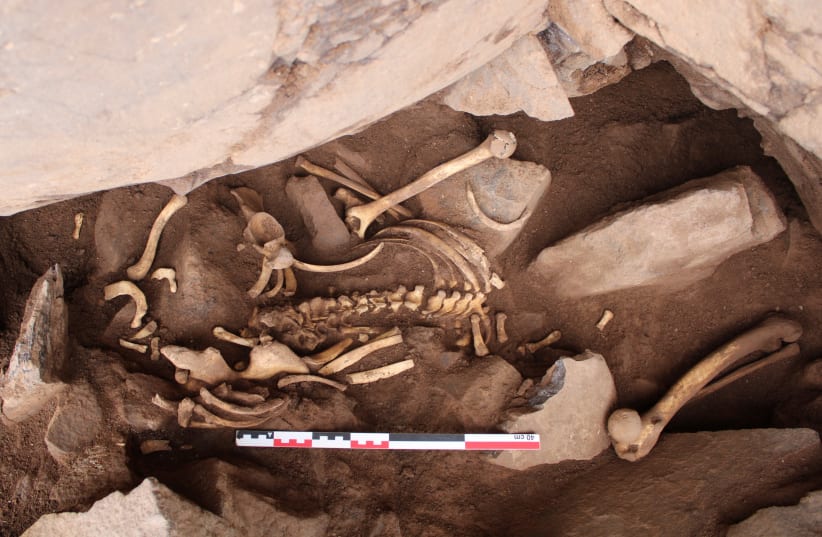Archaeologists from the University of Barcelona in Spain have uncovered a rare Neolithic death ritual containing the remains of four individuals which are incredibly well preserved, and the funerary rites were the first of their kind seen in the region.

The remains include those of an adult, an adolescent, and two children aged 3 to 6 years, which have been dated to 6,400 years old. Unusually, the four individuals had been placed in a tight foetal position and then bound together with rope and wrapped in a shroud. Manual Edo, director of the excavations, believes they were placed in this position because “that is how you arrive on Earth and how you leave.”

Along with the human remains, researchers found an ovoid glass container with two handles and some fragments of the bones of two goats and one calf. Under the remains of the man, close to his elbow, they found a polished bone pendant. The remains of a bonfire were also found in the cave, which may have been lit as part of the funeral rites.
“The funerary rites here are different to those (seen) elsewhere,” said Edo. He added that the rites are the first of their kind to be seen on the Iberian Peninsula.

The findings occurred in the Can Sadurni cave in Begues, near the city of Barcelona. Back in 1999, excavations in the cave had also revealed the earliest evidence of fermented beer in Europe, which may have been included as part of the death ritual.